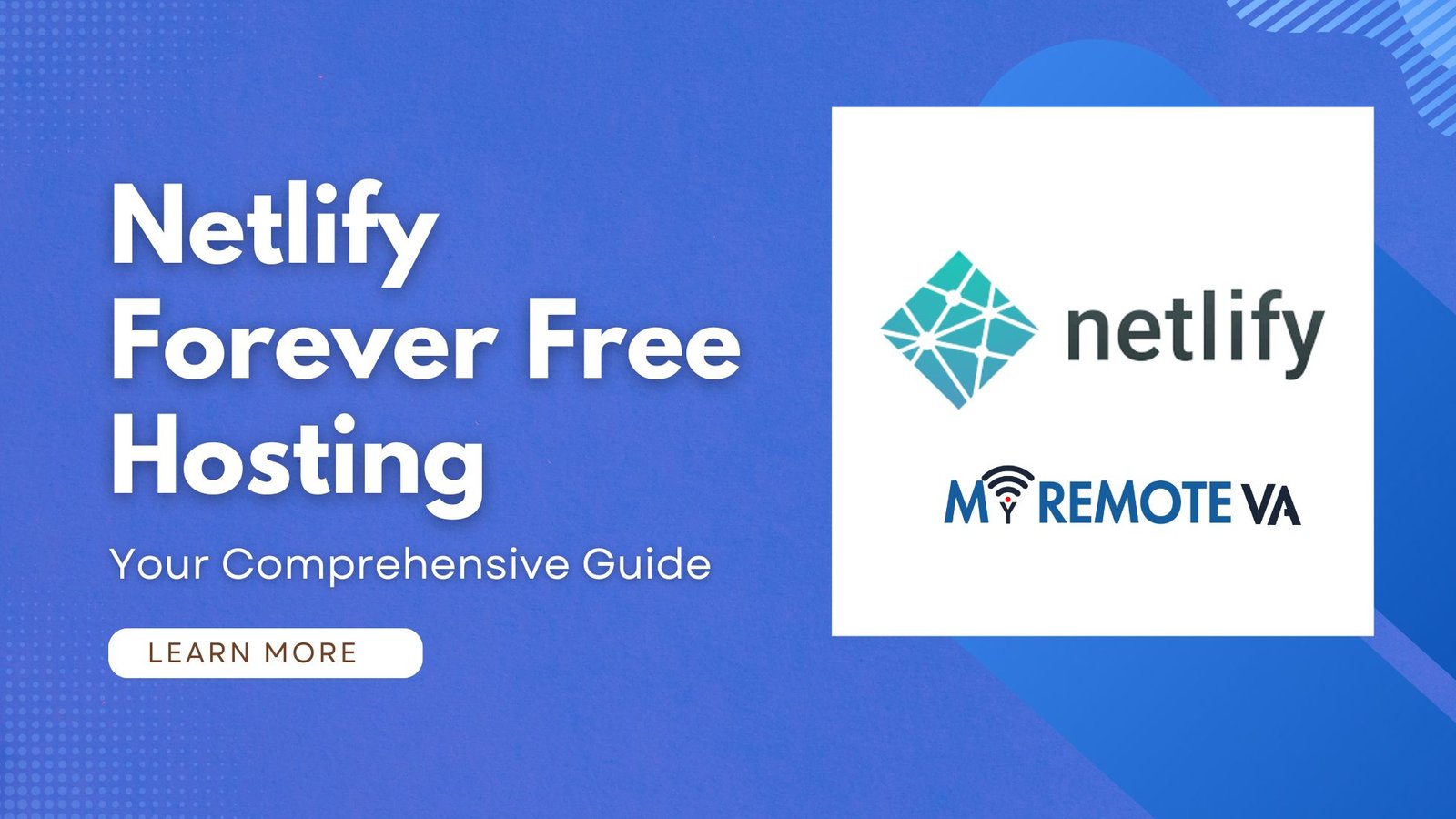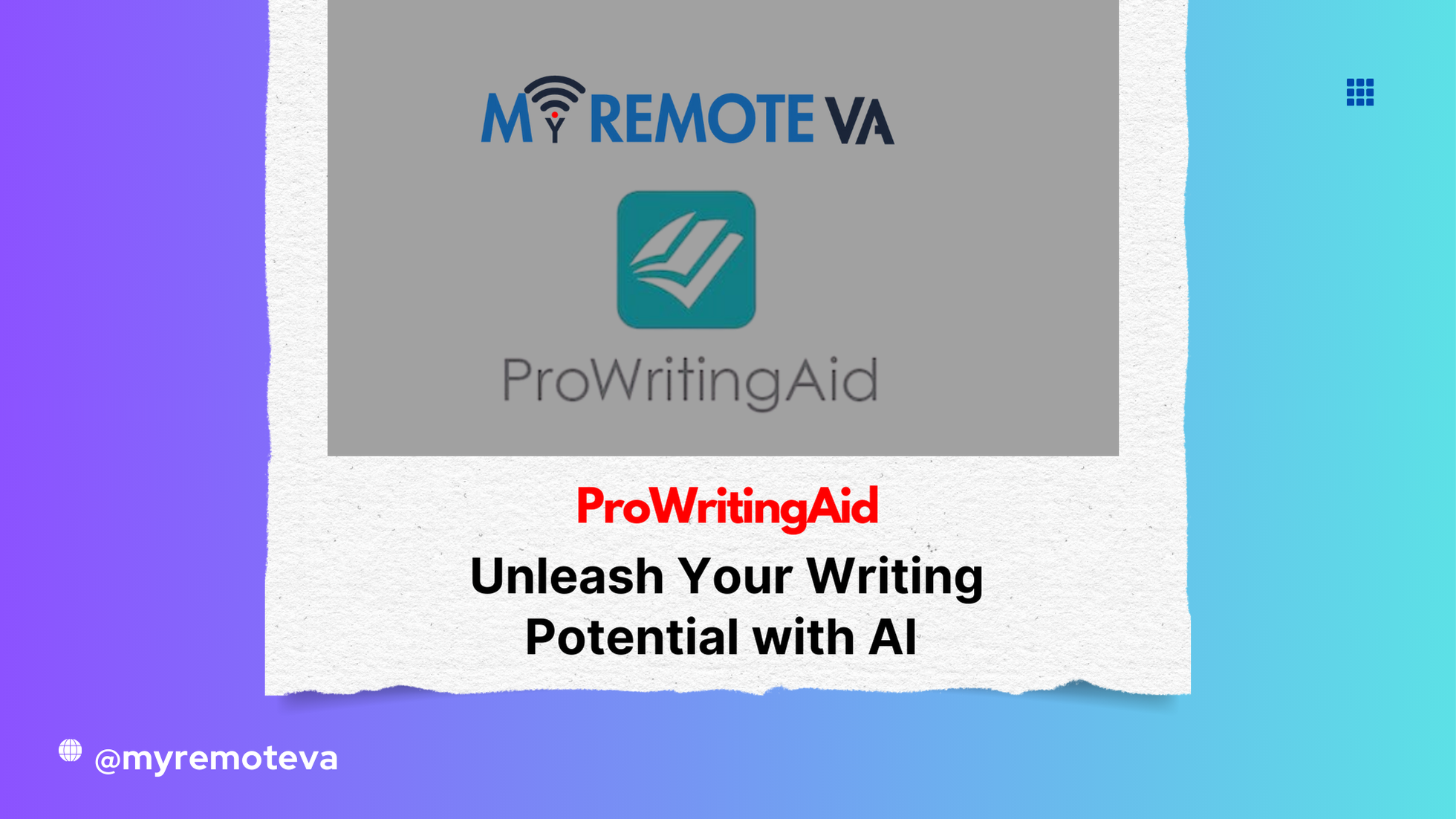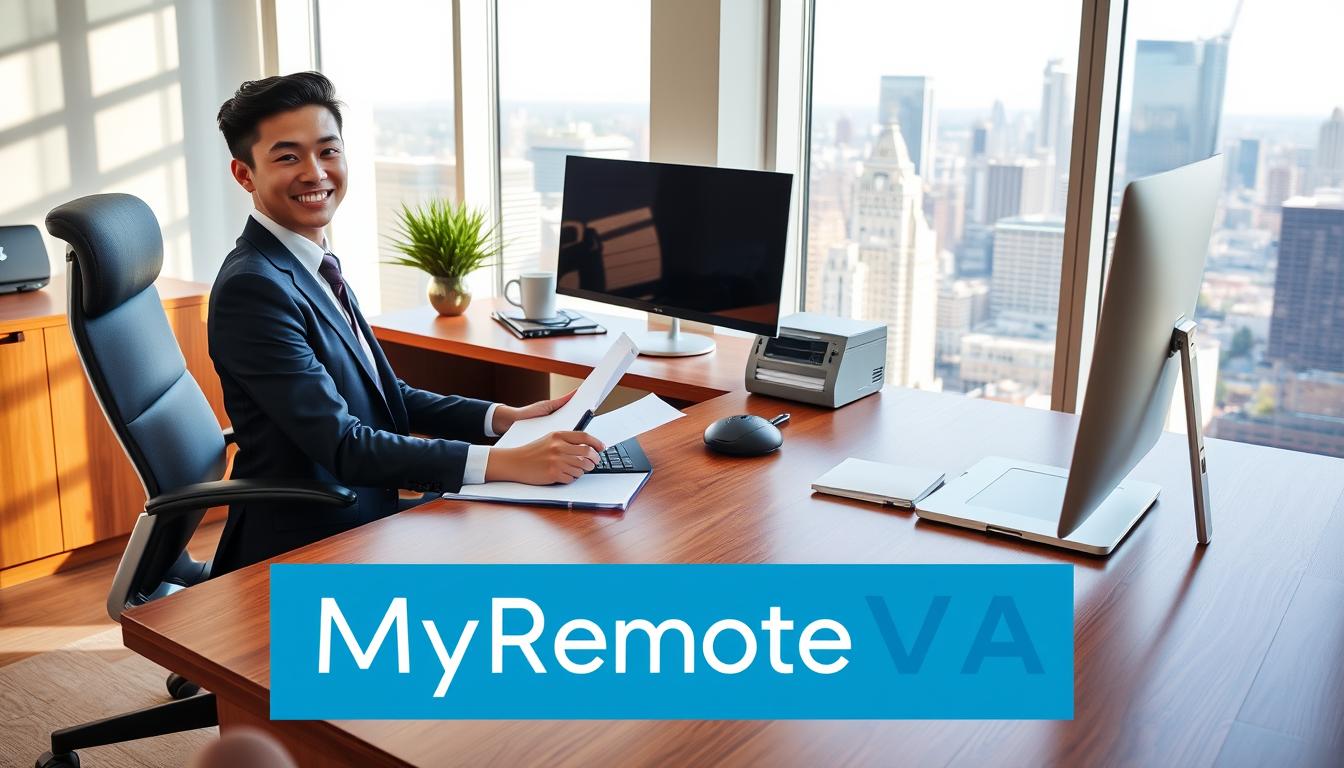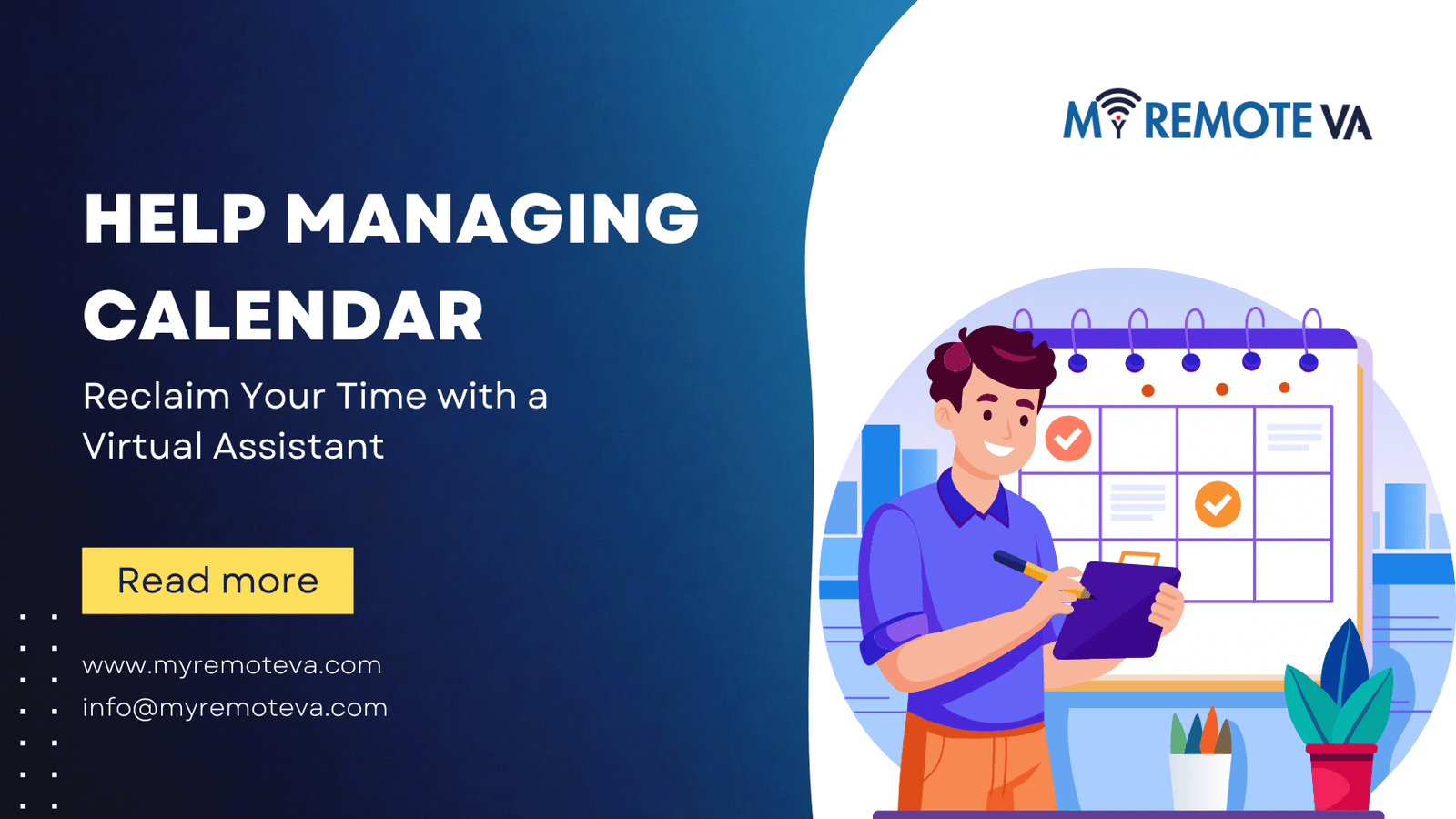Introduction: Choosing the Right Support for Your Real Estate Business
For real estate professionals, time is money. Managing listings, scheduling showings, handling paperwork, and nurturing leads can quickly become overwhelming. To stay competitive and focus on closing deals, many agents and brokers seek administrative support. The question then becomes: Is hiring a virtual assistant (VA) a better option than hiring an in-house assistant? This decision involves carefully weighing the pros and cons of each approach, considering factors like cost, control, and specific business needs.
- Introduction: Choosing the Right Support for Your Real Estate Business
- Understanding the Roles: Virtual Assistant vs. In-House Assistant
- What Does an In-House Assistant Do?
- What Does a Real Estate Virtual Assistant Do?
- Comparing Key Factors: VA vs. In-House
- Cost Analysis: Affordability and Value
- Flexibility and Scalability: Adapting to Business Needs
- Management and Training: Time Investment and Expertise
- Communication and Collaboration: Staying Connected and Productive
- Data Security and Confidentiality: Protecting Sensitive Information
- Recent Market Signals (Last Month)
- USA: Virtual vs. In-House Assistants for Real Estate Professionals
- Virtual Assistant vs. In-House Assistant for UK Real Estate Professionals
- Virtual Assistants for Real Estate Professionals in New Zealand
- Virtual Assistants for Real Estate Professionals in Singapore
- Virtual Assistants for Australian Real Estate Professionals: A Smart Choice?
- Is a Virtual Assistant the Right Choice for UAE Real Estate Professionals?
- Making the Right Choice: Factors to Consider
- Assess Your Specific Needs and Budget
- Evaluate Your Management Style and Preferences
- Research and Vet Potential Virtual Assistants or Agencies
- Conclusion: Empowering Your Real Estate Business
- FAQ: Frequently Asked Questions
- What Types of Tasks Can a Real Estate VA Handle?
- How much does it cost to hire a real estate VA?
- How do I ensure the security of my data when working with a VA?
- How Can I Effectively Communicate with My Virtual Assistant?
- Where Can I Find Qualified Real Estate Virtual Assistants?
The demands of the real estate industry often fluctuate. One week might be filled with back-to-back appointments, while the next could be slower. This variability can make staffing a consistent in-house assistant challenging. In contrast, virtual assistants often offer flexible solutions, allowing you to scale support up or down as needed.
Virtual assistants offer expert support through flexible hourly and team-based plans. Real estate professionals can delegate administrative, technical, customer support, marketing, and creative tasks. Options range from curated Hourly Monthly Plans to dedicated team plans, offering a range of options based on your specific needs.
Choosing the right support model is a critical decision that can significantly impact your productivity and bottom line. This guide will explore the key considerations, helping you determine whether a virtual assistant or an in-house assistant is the best fit for your real estate business.
Understanding the Roles: Virtual Assistant vs. In-House Assistant
Real estate professionals often find themselves juggling numerous tasks, from client management and property showings to marketing and administrative duties. Both virtual assistants (VAs) and in-house assistants can provide support, but they differ significantly in their roles, responsibilities, and overall suitability for a real estate business.
In-House Assistant: The Dedicated Presence
An in-house assistant works physically within your office. They are typically considered full-time employees, offering a dedicated presence and potential for immediate collaboration. Their responsibilities may include:
- Answering phones and greeting clients
- Managing physical files and paperwork
- Scheduling appointments and coordinating showings
- Running errands and handling local tasks
- Providing general office support
Having an in-house assistant allows for face-to-face interaction and immediate assistance with tasks that require physical presence. This can be beneficial for building team rapport and maintaining a consistent office environment.
Virtual Assistant: The Remote Powerhouse
A virtual assistant works remotely, providing support from a separate location. They offer flexibility and can be contracted on a part-time or project basis. Their responsibilities may encompass:
- Managing email and online communication
- Creating marketing materials and social media content
- Performing data entry and research
- Scheduling appointments and managing calendars remotely
- Providing customer support and lead generation
- Handling administrative tasks such as preparing documents and reports
Virtual assistants offer access to a wider range of skills and expertise, as you can hire individuals specializing in specific areas like marketing, tech support, or customer service. They also provide cost savings, as you only pay for the hours they work, eliminating costs associated with employee benefits, office space, and equipment.
Many real estate professionals are leveraging virtual assistants to delegate tasks such as marketing, customer support, tech support, and administrative tasks. This allows them to focus on core activities like building relationships with clients and closing deals.
What Does an In-House Assistant Do?
An in-house assistant for a real estate professional typically works directly from your office, providing on-site support for a wide range of tasks. Their responsibilities can vary greatly depending on the size and needs of your business, but commonly include:
Administrative Support
This is a core function. An in-house assistant can handle day-to-day administrative duties such as:
- Answering phones and managing correspondence (email, mail)
- Scheduling appointments and managing calendars
- Organizing and maintaining files and records
- Preparing documents and presentations
- Data entry and database management
Client Management
Providing excellent client service is paramount in real estate. In-house assistants often play a crucial role here by:
- Greeting clients and providing a welcoming atmosphere
- Following up with leads and prospects
- Assisting with client communication and correspondence
- Preparing marketing materials for specific properties
- Coordinating showings and open houses
Marketing Assistance
While a dedicated marketing team might exist, an in-house assistant can contribute to marketing efforts by:
- Creating and distributing marketing materials (flyers, brochures)
- Managing social media accounts
- Updating property listings on websites and portals
- Assisting with the planning and execution of marketing campaigns
Transaction Coordination
Depending on their experience, an in-house assistant may assist with the real estate transaction process, including:
- Preparing paperwork and contracts
- Coordinating with lenders, escrow companies, and other parties
- Tracking deadlines and ensuring compliance
Ultimately, an in-house assistant becomes an integral part of your physical office environment, building relationships with your team and clients on a face-to-face basis. They offer readily available, immediate support. However, this convenience comes with associated costs and considerations related to salary, benefits, office space, and ongoing management.
What Does a Real Estate Virtual Assistant Do?
A real estate virtual assistant (VA) can significantly lighten the load for busy real estate professionals. They handle a wide range of tasks, freeing up your time to focus on core activities like meeting clients, closing deals, and generating new leads. Think of them as your off-site, on-demand support system.
Common Tasks Handled by Real Estate VAs:
- Administrative Tasks: Managing your calendar, scheduling appointments, handling email correspondence, preparing documents, and data entry. These tasks are crucial but often time-consuming, taking you away from revenue-generating activities.
- Marketing & Lead Generation: Creating and scheduling social media posts, managing email marketing campaigns, creating flyers and brochures, and even assisting with lead generation activities like online research and contact list building. Consistent marketing is vital in real estate, and a VA can help maintain that momentum.
- Customer Support: Answering phone calls, responding to inquiries, providing information to potential clients, and following up with leads. Excellent customer service is key to building relationships and securing deals.
- Transaction Coordination: Assisting with paperwork, tracking deadlines, communicating with all parties involved in a transaction (lenders, title companies, etc.), and ensuring a smooth closing process. This can be a particularly valuable service, ensuring compliance and minimizing stress.
- Property Management Support: If you handle property management, a VA can assist with tenant screening, rent collection, and handling maintenance requests.
The specific tasks a real estate VA handles will depend on your individual needs and the skills of the VA. For example, some VAs may specialize in social media marketing, while others are highly proficient in transaction coordination.
Many real estate professionals are finding that delegating these tasks allows them to increase their productivity, focus on high-value activities, and ultimately, grow their business. By freeing up your time, a VA enables you to work on your business rather than constantly being stuck working in it.
Comparing Key Factors: VA vs. In-House
Real estate professionals face a crucial decision: invest in an in-house assistant or leverage the capabilities of a virtual assistant (VA). Both options offer support, but their suitability depends on your specific needs and priorities. Let’s compare key factors to help you make an informed choice.
Cost
One of the most significant differences lies in cost. In-house assistants require a salary, benefits (health insurance, paid time off), office space, equipment, and payroll taxes. These costs can add up substantially, especially for smaller real estate businesses. VAs, on the other hand, often operate on a contract basis, eliminating many of these overhead expenses. With flexible hourly and team-based plans, you only pay for the support you need.
For example, imagine needing only 20 hours of administrative assistance per month. Hiring an in-house employee, even part-time, may still require a commitment to a higher minimum hourly rate and mandatory benefits. A VA can provide those 20 hours without the added costs of payroll taxes, office space, or equipment.
Flexibility and Scalability
The flexibility and scalability offered by VAs are a major advantage. In-house assistants typically work set hours, regardless of workload fluctuations. VAs provide on-demand support, allowing you to scale your assistance up or down as needed. If you experience a surge in transactions one month, you can increase your VA’s hours. Conversely, during slower periods, you can reduce hours to minimize expenses. This agility is particularly valuable in the cyclical real estate market.
Expertise and Skill Sets
In-house assistants may require training to develop specific real estate skills. VAs often specialize in certain areas, such as administrative tasks, customer support, marketing, or technical support. You can choose a VA with the specific expertise needed for your business. For example, a real estate professional might require a VA to manage listings, schedule showings, create marketing materials, or provide customer support. Leveraging a VA with proven skills in these areas can significantly improve efficiency and results.
Management and Oversight
In-house assistants require direct management and supervision. This includes training, performance reviews, and daily oversight of tasks. Some VA companies offer Dedicated Supervisors that manage the VA, shift, processes, and reporting so you don’t have to. This can free up your time to focus on core business activities, such as client acquisition and closing deals.
Location
In-house assistants are physically present in your office, which can facilitate communication and collaboration. However, VAs offer the convenience of remote support, allowing you to access talent from anywhere in the world. This can be particularly beneficial if you require assistance during non-traditional business hours.
Cost Analysis: Affordability and Value
One of the most significant factors for real estate professionals considering a virtual assistant (VA) versus an in-house assistant is cost. A thorough cost analysis reveals the potential for substantial savings when opting for a virtual assistant.
Direct Costs: Salary vs. Hourly Rates
The most obvious difference lies in the direct costs. Hiring an in-house assistant involves a fixed annual salary, which can be a significant expense, especially for smaller real estate businesses or solo agents. This salary is consistent regardless of workload fluctuations.
Virtual assistants, on the other hand, often operate on an hourly or project-based rate. This allows you to pay only for the specific time and tasks required. Many VA services offer flexible hourly monthly plans, allowing you to scale your support up or down as needed.
Hidden Costs: Beyond the Salary
The true cost of an in-house assistant extends beyond the base salary. Employers must also factor in:
- Payroll taxes
- Employee benefits (health insurance, retirement contributions, paid time off)
- Office space and equipment
- Training costs
These hidden costs can significantly increase the overall expense of an in-house employee. Virtual assistants typically operate as independent contractors, meaning you are not responsible for these additional expenses. You avoid the overhead associated with providing a physical workspace, benefits packages, and employee training programs.
Value and Return on Investment
Beyond the pure cost savings, it’s crucial to consider the value and return on investment (ROI). A skilled virtual assistant can handle a wide range of tasks, freeing up the real estate professional to focus on higher-value activities like client acquisition, property showings, and negotiation.
By delegating administrative tasks, marketing support, or even customer service to a VA, real estate agents can improve their efficiency, increase their earning potential, and ultimately achieve a better ROI. This allows them to focus on what they do best – selling real estate.
Flexibility and Scalability: Adapting to Business Needs
One of the most compelling advantages of hiring a virtual assistant (VA) over an in-house assistant for real estate professionals lies in the unparalleled flexibility and scalability they offer. The real estate market is dynamic, with fluctuating workloads and varying demands. A VA allows you to adapt to these changes seamlessly, ensuring you’re always appropriately staffed without the burden of fixed overhead costs.
Scaling Up or Down with Ease
Imagine needing extra support during a busy season or when launching a new marketing campaign. With a VA, you can easily increase their hours or delegate additional tasks without the lengthy process of hiring and training a new employee. Conversely, during slower periods, you can reduce their hours or focus them on essential maintenance tasks, optimizing your expenses.
In contrast, an in-house assistant’s salary and benefits remain consistent regardless of workload, potentially leading to inefficiencies during quieter times. The rigid nature of a traditional employment contract can make it difficult to quickly adapt to changing business needs.
Pay Only for What You Need
The ability to pay only for the hours a VA works is a significant advantage. Whether you need a few hours a week for administrative tasks or a full-time commitment for complex projects, a VA can provide tailored support to match your specific requirements. This pay-as-you-go model ensures you’re not paying for idle time or underutilized resources.
This contrasts sharply with the fixed costs associated with an in-house assistant, including salary, benefits, payroll taxes, and potential overtime pay. The cost savings associated with a VA can be substantial, especially for smaller real estate businesses or solo agents.
Access to Specialized Skills on Demand
Virtual assistants often possess specialized skills in areas such as social media marketing, graphic design, or website management. This allows you to access expertise only when needed, without the expense of hiring full-time specialists.
For instance, if you need help creating visually appealing marketing materials for a new listing, you can delegate this task to a VA with graphic design skills. Once the project is complete, you can move on to other tasks, avoiding the need to retain a full-time graphic designer. This flexibility is invaluable in today’s fast-paced real estate market.
Management and Training: Time Investment and Expertise
One of the most significant considerations when choosing between a virtual assistant (VA) and an in-house assistant is the time investment required for management and training. This aspect directly impacts your productivity and overall return on investment.
In-House Assistant: Hands-On Management and Ongoing Training
Hiring an in-house assistant typically involves a more hands-on management approach. You are responsible for:
- Initial Training: Providing comprehensive training on real estate processes, software, and specific tasks relevant to your business.
- Ongoing Supervision: Daily supervision, task delegation, and performance monitoring.
- Knowledge Updates: Keeping your assistant updated on industry changes, new technologies, and evolving best practices.
This requires a significant time commitment, especially in the initial stages and when introducing new systems or strategies. While direct oversight can be beneficial, it can also detract from your core revenue-generating activities, such as client meetings, property showings, and negotiations.
Virtual Assistant: Reduced Management Overhead and Specialized Skills
Virtual assistants often come with a reduced management overhead, particularly when working with established VA companies.
The training and supervision responsibilities are often distributed. The VA would have already learned the fundamental real estate administrative support skills. Your time commitment would be in the initial onboarding and sharing your workflow, preferred tools, and expectations. For virtual assistants that work with Virtual Assistant support companies, there is often a Dedicated Supervisor manages your VA, shift, processes, and reporting so you don’t have to.
Furthermore, many VAs specialize in specific real estate tasks, such as marketing, lead generation, or transaction coordination. This means they often possess pre-existing expertise, reducing the need for extensive training in those areas. The reduced overhead allows real estate professionals to allocate more time to their core responsibilities.
Communication and Collaboration: Staying Connected and Productive
Effective communication and seamless collaboration are crucial for any successful real estate business. When considering a virtual assistant (VA) versus an in-house assistant, it’s essential to examine how each option facilitates these critical aspects.
Communication Methods
In-house assistants often benefit from face-to-face interaction, fostering immediate communication and a sense of team unity. However, modern technology has significantly narrowed the gap between in-person and remote communication. Virtual assistants leverage a range of digital tools to stay connected, including:
- Video Conferencing: Platforms like Zoom, Google Meet, and Microsoft Teams enable real-time meetings and visual communication.
- Instant Messaging: Slack, Microsoft Teams, and other messaging apps provide quick and efficient communication channels for immediate questions and updates.
- Project Management Software: Tools like Asana, Trello, and Monday.com facilitate task management, progress tracking, and collaborative workflows.
- Email: Remains a vital tool for formal communication and document sharing.
The key is establishing clear communication protocols and utilizing the right tools to maintain transparency and ensure everyone is on the same page. A well-managed virtual assistant relationship can be just as communicative and collaborative as one with an in-house assistant.
Productivity and Accountability
Some real estate professionals might worry about monitoring the productivity of a virtual assistant. However, many VA services, offer built-in mechanisms for tracking time and tasks. This includes providing detailed reports on completed tasks, time spent on projects, and overall performance. Furthermore, clear goals, defined key performance indicators (KPIs), and regular check-ins are critical for maintaining accountability, regardless of whether the assistant is in-house or virtual.
The flexibility afforded by virtual assistant services can actually boost productivity. For instance, by delegating administrative tasks, marketing support, or even customer service, the real estate professional can better focus on core activities like lead generation, property showings, and closing deals. This strategic allocation of resources can lead to increased efficiency and overall business growth.
Ultimately, the success of either model hinges on establishing clear expectations, implementing effective communication strategies, and utilizing technology to foster collaboration and maintain accountability.
Data Security and Confidentiality: Protecting Sensitive Information
When entrusting sensitive real estate information, data security and confidentiality are paramount, regardless of whether you choose an in-house assistant or a virtual assistant. It’s crucial to understand the security measures associated with each option.
In-House Assistant Security Considerations
Hiring an in-house assistant allows for direct oversight and control over their workspace and computer usage. You can implement security protocols directly, such as:
- Physical security measures within your office.
- Direct control over their computer and network access.
- Direct enforcement of non-disclosure agreements (NDAs) and company security policies.
However, managing security in-house also requires ongoing effort and investment in security software, employee training, and consistent policy enforcement.
Virtual Assistant Security Considerations
While you don’t have direct physical control over a virtual assistant’s workspace, reputable virtual assistant services understand the critical importance of data security and implement robust measures. These may include:
- Background Checks: Thorough background checks on all VAs.
- Secure Communication Channels: Utilizing encrypted communication tools and secure file-sharing platforms.
- Data Encryption: Employing data encryption at rest and in transit.
- NDAs and Confidentiality Agreements: Strict adherence to non-disclosure agreements.
- Regular Security Audits: Conducting regular security audits to identify and address potential vulnerabilities.
- Access Controls: Implementing strict access controls, limiting access to sensitive data on a need-to-know basis.
- Dedicated Supervision: Some services, like those offering team-based plans or dedicated supervisors, provide an extra layer of oversight to ensure processes are followed correctly and securely.
When evaluating a virtual assistant service, inquire about their specific security protocols and ensure they align with your data security requirements. A strong security posture demonstrates a commitment to protecting your sensitive information.
Recent Market Signals (Last Month)
Understanding recent market trends is crucial when deciding between a virtual assistant (VA) and an in-house assistant. Here’s a snapshot of key indicators:
Increased Demand for Flexible Staffing Solutions
Across various industries, including real estate, there’s a noticeable increase in demand for flexible staffing solutions. This trend is driven by several factors, including budget constraints, fluctuating workloads, and the need for specialized skills. Real estate professionals are increasingly exploring virtual assistants to address these challenges .
Growing Adoption of Virtual Assistants in Real Estate
Data indicates a significant rise in the adoption of virtual assistants by real estate professionals. VAs are being utilized for a variety of tasks, including administrative support, lead generation, marketing, and customer service . This suggests that more real estate agents and brokers are recognizing the benefits of leveraging virtual assistance to streamline their operations.
Cost-Effectiveness Remains a Key Driver
Cost savings remain a primary driver for considering a VA over an in-house assistant. Recent analyses show that hiring a VA can significantly reduce overhead costs associated with salaries, benefits, office space, and equipment. For real estate professionals operating on tight budgets, this can be a major advantage .
Focus on Core Business Activities
Real estate professionals are increasingly focusing on revenue-generating activities such as client acquisition, property showings, and negotiations. Delegating non-core tasks to VAs allows them to free up their time and energy to concentrate on these essential functions, potentially leading to increased sales and profitability .
Technology Enables Seamless Collaboration
Advancements in communication and collaboration technologies have made it easier than ever to work effectively with virtual assistants. Real estate professionals can leverage tools such as video conferencing, project management software, and cloud-based platforms to maintain seamless communication and track progress .
USA: Virtual vs. In-House Assistants for Real Estate Professionals
For real estate professionals in the USA, the decision between hiring a virtual assistant (VA) and an in-house assistant is a critical one with significant implications for budget, efficiency, and overall business strategy. While in-house assistants offer the benefit of direct, face-to-face interaction and immediate availability, VAs present a compelling alternative, particularly in today’s increasingly digital and fast-paced market.
Cost Considerations in the USA
One of the most significant advantages of a VA is cost-effectiveness. In the USA, the expenses associated with hiring a full-time in-house assistant extend far beyond just salary. Employers must also factor in costs such as payroll taxes, health insurance, paid time off, office space, equipment, and ongoing training. A VA, on the other hand, typically operates as an independent contractor, shifting many of these financial burdens away from the real estate professional. You typically pay only for the hours they work.
Access to Specialized Skills
The real estate industry is multifaceted, requiring a diverse skill set from administrative tasks and scheduling to marketing, social media management, and even technical support. Hiring a single in-house assistant with expertise in all these areas can be challenging. Virtual assistant services offer access to a wider pool of talent, often with specialized skills tailored to specific needs. You might need help with admin, tech, customer support, marketing, creative tasks, or executive work.
Flexibility and Scalability
The demands of a real estate business can fluctuate considerably. During peak seasons or busy periods, the workload may increase dramatically, while during slower times, it may decrease. VAs offer greater flexibility, allowing real estate professionals to scale their support up or down as needed. They can choose hourly monthly plans like 5, 10, 20, or 30 hours. This on-demand access to assistance prevents the costs of unused employee time during slower periods and the challenges of overworking a single in-house assistant during busy periods.
Focus on Core Activities
By delegating administrative, marketing, or technical tasks to a VA, real estate professionals can free up their time and energy to focus on core revenue-generating activities, such as lead generation, property showings, and client relationship management. A Dedicated Supervisor managing the VA, shift, processes, and reporting ensures the real estate professional doesn’t have to. This strategic shift in focus can lead to increased productivity and improved business outcomes.
Virtual Assistant vs. In-House Assistant for UK Real Estate Professionals
For real estate professionals in the UK, the decision between hiring a virtual assistant (VA) and an in-house assistant presents a key operational choice. Both options offer support, but they differ significantly in cost, flexibility, and management requirements.
Cost Considerations in the UK Market
In-house assistants incur substantial costs beyond their salary. Employers must factor in National Insurance contributions, pension contributions, holiday pay, sick pay, office space, equipment, and ongoing training. These overheads can quickly add up, particularly in expensive areas of the UK. A VA, on the other hand, typically eliminates many of these costs. You only pay for the hours worked, often on a pre-agreed project basis, and avoid the expenses associated with employee benefits and infrastructure.
Flexibility and Scalability
The real estate market is often cyclical, with periods of intense activity followed by quieter times. In-house assistants represent a fixed cost regardless of workload. VAs offer greater flexibility. You can scale their hours up or down as needed, adapting to the changing demands of your business. This scalability is especially valuable for smaller agencies or independent agents experiencing rapid growth or seasonal fluctuations.
Task Delegation and Expertise
A key advantage of a VA is access to a wider range of skills. While an in-house assistant may be proficient in administrative tasks, a VA can be chosen for specific expertise such as marketing, social media management, property listing updates, or even preliminary client communication. This allows you to delegate specialized tasks to professionals with the necessary skills, improving efficiency and potentially driving better results.
Management and Supervision
Managing an in-house assistant requires ongoing supervision, training, and performance management. With a VA, depending on the service, some level of management is often included. This can free up your time to focus on core business activities like client acquisition and closing deals.
Which Option is Right for You?
The best choice depends on your specific needs and circumstances. If you require a dedicated assistant with a consistent presence in your office and the need for in-person interaction is high, an in-house assistant may be preferable. However, if you prioritize cost-effectiveness, flexibility, and access to specialized skills, a virtual assistant could be the more advantageous option, potentially leading to significant improvements in productivity and overall business efficiency within the UK real estate sector.
Virtual Assistants for Real Estate Professionals in New Zealand
The New Zealand real estate market, with its unique dynamics and regulatory environment, presents both opportunities and challenges for professionals. In this context, the decision between hiring a virtual assistant (VA) and an in-house assistant is particularly relevant. A VA offers a potentially more cost-effective and flexible solution, particularly beneficial for agents and agencies looking to streamline operations and focus on core revenue-generating activities.
Benefits of a Real Estate Virtual Assistant in NZ
Consider these advantages when comparing a VA to a traditional in-house assistant:
- Cost Savings: VAs typically involve lower overhead costs than hiring an employee. You avoid expenses like payroll taxes, benefits, and office space.
- Flexibility and Scalability: You can easily adjust the number of hours your VA works based on your current needs. Scale up during busy periods and reduce hours during slower times. This is particularly beneficial in a market that can fluctuate.
- Access to Specialized Skills: VAs often possess specialized skills, such as digital marketing, social media management, or database management, which can be a significant asset to your real estate business.
- Focus on Core Activities: By delegating administrative tasks, appointment scheduling, and marketing support to a VA, real estate professionals can dedicate more time to client interaction, property showings, and closing deals.
Tasks You Can Delegate to a Real Estate VA
A skilled VA can handle a wide range of tasks crucial for success in the New Zealand real estate market. These might include:
- Administrative Support: Managing emails, scheduling appointments, handling correspondence, and preparing documents.
- Marketing Assistance: Creating social media content, managing online listings, designing marketing materials, and running email campaigns.
- Customer Service: Responding to inquiries, providing property information, and coordinating viewings.
- Data Entry and Management: Updating databases, maintaining client information, and conducting market research.
The key to successfully integrating a VA into your real estate workflow is clear communication, well-defined processes, and effective task management.
Virtual Assistants for Real Estate Professionals in Singapore
For real estate professionals in Singapore, the decision between hiring a virtual assistant (VA) and an in-house assistant hinges on a variety of factors, primarily cost-effectiveness, flexibility, and access to specialized skills. Singapore’s high cost of living translates to significant expenses associated with hiring an in-house assistant, including salary, benefits, office space, and equipment.
A virtual assistant offers a potentially more budget-friendly alternative. With flexible hourly and team-based plans, real estate professionals can access support for administrative tasks, marketing, customer service, and even technical tasks without the overhead costs of a full-time employee. This can be especially appealing for smaller agencies or independent agents.
Benefits of Virtual Assistants in the Singapore Real Estate Market
Consider the specific demands of the Singaporean real estate market. A VA can assist with:
- Managing property listings on various online platforms.
- Scheduling property viewings and coordinating with clients.
- Handling initial inquiries and providing information to potential buyers or renters.
- Preparing marketing materials, such as brochures and social media content.
- Conducting market research and gathering data on property trends in specific neighborhoods.
- Providing customer support via phone and email.
Furthermore, a VA service provider might offer a Dedicated Supervisor who manages the VA, shift, processes, and reporting, allowing real estate professionals to focus on core business activities, such as closing deals and building relationships with clients.
Weighing the Considerations
While a VA offers numerous advantages, it’s important to consider potential drawbacks. Communication challenges due to time zone differences (though less pronounced for Singapore) and cultural nuances may arise. Ensuring data security and maintaining confidentiality are also crucial considerations. Furthermore, some real estate professionals may prefer the direct, in-person interaction offered by an in-house assistant.
Ultimately, the optimal choice depends on the individual needs and priorities of the real estate professional. If cost savings and flexibility are paramount, a virtual assistant can be an excellent solution. However, if direct supervision and constant in-person presence are essential, an in-house assistant may be a better fit.
Virtual Assistants for Australian Real Estate Professionals: A Smart Choice?
For Australian real estate professionals juggling property listings, client management, marketing, and administrative tasks, the question of hiring assistance is critical. Is hiring a virtual assistant (VA) a better solution than hiring an in-house assistant? Let’s explore the benefits of a VA specifically within the Australian real estate context.
Cost-Effectiveness in the Australian Market
In Australia, labor costs are significant. Employing an in-house assistant involves salary, superannuation, workers’ compensation, payroll tax, and potentially, office space costs. A virtual assistant, on the other hand, offers a flexible, pay-as-you-go model. You only pay for the hours you need, potentially saving a significant amount.
Focus on Core Activities
Delegating tasks like property research, social media management, appointment scheduling, and even basic bookkeeping to a VA frees up valuable time for real estate agents to focus on generating leads, closing deals, and building client relationships. Think of the time saved on administrative tasks that could be spent on open houses or nurturing potential buyers.
Flexibility and Scalability for Australian Businesses
The Australian real estate market can fluctuate. With a VA, you can scale your support up or down as needed. Need extra help during peak selling season? Increase your VA hours. Experiencing a slower period? Reduce them. This flexibility is invaluable compared to the fixed cost of an in-house employee.
Access to Specialized Skills
Finding an in-house assistant with all the necessary skills for modern real estate – including digital marketing, CRM management, and knowledge of Australian property regulations – can be challenging. VAs often specialize in specific areas, giving you access to expert assistance when and where you need it. You can find VAs with experience in Australian real estate specific software and practices.
Examples of Tasks VAs Can Handle in Australia:
- Creating and managing property listings on Australian real estate portals.
- Scheduling appointments with prospective buyers and sellers.
- Managing social media marketing campaigns targeting Australian audiences.
- Conducting property research and market analysis.
- Preparing documents and contracts.
- Providing customer support to clients in Australian time zones.
Is a Virtual Assistant the Right Choice for UAE Real Estate Professionals?
The UAE real estate market demands efficiency and responsiveness. For real estate professionals operating in Dubai, Abu Dhabi, or other emirates, the question arises: is hiring a virtual assistant (VA) a better option than hiring an in-house assistant? The answer depends on your specific needs and priorities.
Cost Considerations
In the UAE, the cost of hiring an in-house assistant includes salary, visa expenses, medical insurance, and other benefits like housing allowances. A VA, on the other hand, can significantly reduce these overhead costs. You only pay for the hours the VA works, eliminating the need for office space, equipment, and employee benefits. This can be especially appealing for startups and smaller real estate agencies.
Flexibility and Scalability
The UAE real estate market can fluctuate seasonally. Virtual assistants offer greater flexibility to scale your support up or down as needed. You can adjust the number of hours worked based on your workload, avoiding the fixed costs associated with a full-time in-house employee. Flexible hourly and team-based plans, such as those offering curated options for 5, 10, 20, or 30 hours a month, provide an easy way to get started and adapt as your business grows.
Access to a Wider Talent Pool
Hiring a VA opens access to a global talent pool. This allows you to find assistants with specialized skills in areas like real estate marketing, property management support, or lead generation. Instead of being limited to the local job market, you can find a VA with the exact experience and skillset you require. You can delegate admin, tech, customer support, marketing, creative tasks, or executive work, depending on your needs.
Potential Challenges
While VAs offer many benefits, it’s important to consider potential challenges. Effective communication and clear instructions are essential for successful collaboration. Establishing trust and building a strong working relationship may require more effort than with an in-house assistant. Furthermore, managing a VA remotely requires strong organizational skills and the ability to track progress effectively. A Dedicated Supervisor managing the VA’s shift, processes, and reporting can ease this burden.
Making the Right Choice: Factors to Consider
Deciding between a virtual assistant (VA) and an in-house assistant for your real estate business is a crucial decision with significant implications for your budget, productivity, and overall operational efficiency. There’s no one-size-fits-all answer; the best choice depends on your specific needs, priorities, and circumstances. Here are some key factors to weigh:
Cost Comparison
This is often the most significant consideration. In-house assistants come with a fixed salary, benefits (health insurance, paid time off, retirement contributions), payroll taxes, and potential costs associated with office space, equipment, and training. Virtual assistants, on the other hand, typically operate on a contractual basis, often hourly or project-based. This eliminates the need for benefits, reduces overhead, and offers greater flexibility in scaling your support needs up or down.
For example, a full-time in-house assistant in a major metropolitan area could easily cost upwards of $50,000-$70,000 per year when all expenses are factored in. A VA, particularly with flexible hourly plans, could represent a substantial cost saving, especially if your needs fluctuate or are limited to specific tasks.
Scope of Responsibilities
Consider the range of tasks you need assistance with. In-house assistants are generally versatile and can handle a variety of administrative, clerical, and customer service duties within the office environment. However, if you require specialized skills, such as digital marketing, graphic design, or advanced tech support, a virtual assistant with expertise in those areas might be a more cost-effective solution than hiring a full-time in-house employee with a broader skillset. With virtual assistant services, you can delegate admin, tech, customer support, marketing, creative tasks, or executive work.
Scalability and Flexibility
Real estate is a dynamic industry with peaks and valleys in workload. Virtual assistants offer a significant advantage in terms of scalability. You can easily increase or decrease the number of hours or the level of support you receive based on your current needs. This flexibility can be invaluable during busy seasons or when launching new marketing campaigns. In contrast, hiring and training a full-time employee represents a longer-term commitment and may not be ideal if your needs are unpredictable.
Management and Training
An in-house assistant requires ongoing management, training, and supervision. You’ll need to dedicate time to onboarding, performance reviews, and providing guidance. While some VA companies offer a Dedicated Supervisor that manages your VA, shift, processes, and reporting so you don’t have to; otherwise, with a virtual assistant, you’re often relying on their existing expertise and self-management skills, potentially reducing your management burden. However, clear communication and defined processes are still essential for effective collaboration.
Communication and Collaboration
Effective communication is key to successful teamwork, regardless of whether your assistant is in-house or virtual. With an in-house assistant, face-to-face communication is readily available. Virtual assistants rely on technology for communication, such as email, phone calls, video conferencing, and project management tools. While these tools can be effective, it’s important to establish clear communication protocols and ensure that your VA is responsive and accessible.
Data Security and Confidentiality
Real estate involves handling sensitive client information. Whether you choose an in-house or virtual assistant, it’s crucial to address data security and confidentiality. Ensure that your VA has appropriate security measures in place to protect client data and that they are aware of and compliant with relevant privacy regulations.
Assess Your Specific Needs and Budget
Before deciding between a virtual assistant (VA) and an in-house assistant, it’s crucial for real estate professionals to honestly assess their specific needs and budget. This involves identifying the tasks that require assistance, estimating the time commitment for each task, and determining the budget allocation for administrative support.
Task Identification and Time Commitment
Start by listing all the tasks you currently handle or would like to delegate. These might include:
- Administrative Tasks: Scheduling appointments, managing emails, data entry, preparing documents.
- Marketing Support: Social media management, creating marketing materials, managing listings, running online ads.
- Customer Service: Answering calls, responding to inquiries, following up with leads, providing property information.
- Transaction Coordination: Managing paperwork, communicating with clients and other parties, ensuring deadlines are met.
Once you have a list, estimate the time you spend (or would spend) on each task weekly or monthly. This will help you determine the required level of support. Do you need someone for a few hours a week, or do you require a full-time commitment?
Budget Considerations
The cost of hiring an in-house assistant includes salary, benefits (health insurance, paid time off), payroll taxes, office space, and equipment. These costs can add up quickly. In contrast, hiring a VA often involves a more flexible and potentially more cost-effective model.
For example, many VA services offer hourly or project-based rates. This allows you to pay only for the time you need. Some providers offer curated Hourly Monthly Plans of (5, 10, 20, 30 hours) or build a team with Dedicated Plans, for 80 hours, or for 160 hours, or multi-VA setups. This can be particularly appealing for real estate professionals with fluctuating workloads.
Consider the following budget factors:
- In-house Assistant: Salary, benefits, payroll taxes, office space costs, equipment costs, training costs.
- Virtual Assistant: Hourly rates, project fees, subscription costs (if applicable), onboarding fees.
By carefully evaluating your needs and budget, you can make an informed decision about whether a VA or an in-house assistant is the better fit for your real estate business.
Evaluate Your Management Style and Preferences
Choosing between a virtual assistant (VA) and an in-house assistant isn’t solely about cost. Your management style and preferences play a crucial role in determining which option is the better fit for your real estate business.
Level of Hands-On Involvement
Consider how much direct oversight you prefer. Do you thrive on collaborating closely with your assistant throughout the day, or do you prefer to delegate tasks and receive updates periodically? An in-house assistant allows for immediate face-to-face interaction and spontaneous collaboration. A VA, on the other hand, requires a more structured communication approach, relying on tools like email, video conferencing, and project management software.
Communication Style
Different personalities work better in different scenarios. Some individuals benefit more from constant in-person interaction, while others may be comfortable with mostly virtual communication. If you’re someone who values spontaneous face-to-face meetings or prefers to explain tasks in person, an in-house assistant may suit you better. If you are comfortable communicating remotely, and documenting processes clearly, a VA could be a great choice.
Task Delegation Preferences
Think about the types of tasks you’ll be delegating. If the tasks require handling sensitive physical documents or necessitate constant in-person interaction with clients, an in-house assistant might be essential. However, for tasks such as managing your CRM, updating listings, social media management, creating marketing materials, scheduling appointments, or general administrative work, a VA can be highly effective.
Workflow Structure
Virtual assistants often thrive when working in well-defined, repeatable processes. Standard Operating Procedures (SOPs) and clear instructions can significantly boost a VA’s efficiency. If your workflows are constantly evolving and require a high degree of adaptability and on-the-fly problem-solving, an in-house assistant who can quickly adapt to changing circumstances might be more suitable.
Comfort with Remote Management
Successfully managing a VA requires comfort and proficiency with remote management tools and techniques. Are you comfortable using project management software, video conferencing, and other digital communication tools to stay connected and track progress? Are you willing to invest the time in training your VA on your systems and processes? If so, a VA can be a valuable asset.
Research and Vet Potential Virtual Assistants or Agencies
Once you’ve decided to explore the virtual assistant route, thorough research and vetting are crucial to finding the right fit for your real estate business. Just like hiring an in-house assistant, compatibility and expertise are paramount.
Here’s a breakdown of key considerations:
1. Define Your Needs and Budget
Before you start searching, clearly define the tasks you want to delegate. Are you looking for help with administrative tasks like scheduling appointments and managing emails, marketing tasks like social media management and email campaigns, or more specialized tasks like transaction coordination? Knowing your needs will help you narrow down your search and understand the level of experience required.
Equally important is establishing a budget. VA pricing models vary, including hourly rates, project-based fees, and monthly subscription plans. Understanding your budget will help you determine what type of virtual assistant or agency you can afford.
2. Explore Different Virtual Assistant Options
You have several options when sourcing virtual assistants:
- Individual Freelance VAs: These independent contractors offer flexibility and can be cost-effective. However, you’re solely responsible for managing them and ensuring quality control.
- Virtual Assistant Agencies: Agencies provide pre-vetted VAs, training, and often a dedicated account manager to oversee your project. This can save you time and effort in the long run, but it may come at a higher cost.
3. Check Credentials and Experience
Regardless of the option you choose, always verify the VA’s credentials and experience. Ask for references and review testimonials to gauge their reliability and expertise. Pay close attention to their experience within the real estate industry, as this can significantly impact their ability to assist you effectively.
4. Assess Communication Skills
Clear and effective communication is essential for a successful virtual assistant relationship. During the interview process, assess their communication skills, including their written and verbal abilities, responsiveness, and proactiveness. The right VA should be able to understand your instructions clearly and communicate updates promptly.
5. Consider Security and Confidentiality
Real estate involves sensitive client information, so security and confidentiality are paramount. Ensure that the VA or agency has robust security protocols in place to protect your data. Discuss confidentiality agreements and data protection policies upfront.
Conclusion: Empowering Your Real Estate Business
The decision to hire a virtual assistant (VA) versus an in-house assistant boils down to a strategic assessment of your real estate business’s specific needs, budget, and long-term goals. While an in-house assistant offers direct, physical presence, a virtual assistant provides flexibility, cost-effectiveness, and access to a broader talent pool.
Embrace the Flexibility and Scalability of VAs
For many real estate professionals, the scalability and flexibility offered by virtual assistants prove to be invaluable. Real estate is inherently cyclical, with periods of intense activity followed by slower phases. VAs allow you to adjust your support level as needed, avoiding the fixed costs associated with a full-time employee. You can leverage hourly plans (like 5, 10, 20, or 30 hours per month) to match support to your current workload, or build a team with dedicated plans (80 or 160 hours) for consistent support. For businesses testing the waters, even options like a free introductory plan with task support and rollover benefits are available to explore the possibilities.
Cost-Effective Solutions
Beyond salary, in-house employees entail significant overhead costs, including benefits, office space, equipment, and payroll taxes. A virtual assistant eliminates many of these expenses, allowing you to allocate resources more strategically. This can be particularly beneficial for startups and smaller real estate firms operating on tight budgets.
Focus on Your Core Business
By delegating administrative, technical, marketing, or customer support tasks to a qualified VA, real estate agents and brokers can free up their time to focus on core revenue-generating activities, such as client acquisition, property showings, and negotiation. This increased focus can lead to improved sales performance and business growth.
A Shift in Support Models
Ultimately, choosing between a VA and an in-house assistant is not about one being universally “better” than the other. It’s about identifying the support model that best aligns with your unique circumstances. The increasing adoption of virtual assistants across various industries suggests that the benefits of flexibility, cost-effectiveness, and access to specialized skills are resonating with businesses of all sizes. Real estate professionals, in particular, can find that VAs provide the leverage needed to thrive in a competitive market.
FAQ: Frequently Asked Questions
Real estate professionals are often juggling multiple tasks, from client communication to marketing and administrative work. Deciding whether to hire a virtual assistant (VA) or an in-house assistant is a significant decision. Here are some frequently asked questions to help you make the right choice:
Is a Virtual Assistant More Cost-Effective Than an In-House Assistant?
Generally, yes. Hiring a VA often proves more cost-effective. You avoid expenses like office space, equipment, employee benefits (health insurance, paid time off), and payroll taxes. With a VA, you typically pay only for the hours they work, making it a scalable solution that adapts to your fluctuating workload.
What Types of Tasks Can a Real Estate Virtual Assistant Handle?
Real estate VAs can handle a wide range of tasks, including:
- Administrative Tasks: Scheduling appointments, managing calendars, handling emails and phone calls, data entry, preparing documents.
- Marketing Support: Creating and managing social media content, designing marketing materials, email marketing campaigns, managing online listings.
- Customer Support: Responding to inquiries from clients and leads, providing property information, scheduling showings.
- Transaction Coordination: Assisting with paperwork, tracking deadlines, communicating with parties involved in the transaction.
How Do I Ensure Effective Communication with a Virtual Assistant?
Clear communication is key to a successful VA relationship. Establish clear expectations from the outset, including preferred communication channels (email, phone, project management software), response times, and task deadlines. Regular check-ins and feedback are also essential.
What Are the Potential Drawbacks of Hiring a Virtual Assistant?
While VAs offer many benefits, potential drawbacks can include the need for strong project management skills on your part, potential time zone differences (depending on the VA’s location), and the initial time investment required to train the VA on your specific processes and systems. However, many VA services, like those offering dedicated supervisors, mitigate these concerns by managing the VA’s work, shift, processes, and reporting for you. The dedicated supervisor will help to avoid additional tasks for the professionals.
How Do I Find a Reliable Real Estate Virtual Assistant?
There are several ways to find a reliable VA. You can use online platforms specializing in VA services, such as MyRemoteVA. Some platforms offer curated hourly monthly plans (e.g., 5, 10, 20, 30 hours) or dedicated plans for 80 or 160 hours. Alternatively, you can work with agencies that specialize in real estate VAs and handle the vetting and training process for you. Another option is to ask for referrals from other real estate professionals.
How Do I Get Started with a Virtual Assistant?
Start by identifying the tasks that consume most of your time and could be easily delegated. Then, research and choose a VA or VA service that aligns with your needs and budget. Communicate your expectations clearly, provide thorough training, and monitor progress regularly to ensure a successful partnership.
What Types of Tasks Can a Real Estate VA Handle?
A real estate virtual assistant (VA) can be a game-changer for busy professionals, freeing up your time to focus on high-value activities like closing deals and building client relationships. The range of tasks they can handle is surprisingly broad, making them a flexible and cost-effective solution.
Administrative Support
VAs excel at handling administrative tasks that can eat up significant portions of your day. This includes:
- Managing your calendar and scheduling appointments
- Answering phones and responding to emails
- Data entry and database management
- Preparing documents and presentations
- Managing travel arrangements
Marketing & Lead Generation
Attracting and nurturing leads is crucial for success in real estate. A VA can assist with various marketing activities, such as:
- Creating and scheduling social media posts
- Managing email marketing campaigns
- Creating and managing online advertisements
- Developing marketing materials (flyers, brochures, etc.)
- Conducting market research
Transaction Coordination
Navigating the complexities of real estate transactions requires meticulous attention to detail. A VA can help streamline this process by:
- Preparing transaction documents
- Coordinating with escrow companies, lenders, and other parties
- Tracking deadlines and ensuring compliance
- Managing property listings
- Following up with clients and prospects
Customer Support
Providing excellent customer service is paramount. A VA can assist with:
- Responding to inquiries from clients and prospects
- Scheduling showings and open houses
- Providing property information
- Managing client databases
- Following up with leads
By delegating these tasks to a skilled VA, real estate professionals can significantly increase their productivity, improve their work-life balance, and ultimately, boost their bottom line. A virtual assistant can provide expert support for real estate professionals with admin, customer support, marketing, creative tasks or even executive work.
How much does it cost to hire a real estate VA?
One of the most compelling advantages of hiring a virtual assistant (VA) for your real estate business is often the cost savings. Compared to hiring an in-house assistant, a VA can significantly reduce your overhead.
Understanding the Cost Factors
The cost of a real estate VA can vary significantly based on several factors:
- Experience and Skill Set: More experienced VAs with specialized skills (e.g., lead generation, transaction coordination, advanced marketing) typically command higher rates.
- Location: VAs based in different countries have varying salary expectations.
- Service Model: Some VA services offer hourly plans, while others provide dedicated full-time or part-time assistants.
- Task Complexity: The difficulty and time required for tasks influence the overall cost. Complex tasks require expertise and might be charged higher.
Hourly vs. Dedicated Plans
When evaluating VA options, you’ll likely encounter two main pricing models:
- Hourly Plans: These plans offer flexibility, allowing you to pay for the exact hours your VA works. They are ideal for real estate professionals with fluctuating workloads or specific project needs. For example, some services offer curated Hourly Monthly Plans of (5, 10, 20, 30 hours) designed to handle admin, tech, customer support, marketing, creative tasks, or executive work.
- Dedicated Plans: These plans provide a dedicated VA working a set number of hours per week (e.g., 80 hours or 160 hours). This model is suitable for real estate professionals who require consistent, ongoing support. Some even offer Dedicated Supervisors to manage your VA, shifts, processes, and reporting.
Potential Savings Compared to In-House Assistants
When you hire an in-house assistant, you incur several costs beyond their salary, including :
- Salary
- Benefits (health insurance, paid time off, retirement contributions)
- Payroll taxes
- Office space and equipment
- Training costs
A VA eliminates many of these expenses. You typically pay only for the hours worked, and you are not responsible for benefits, office space, or equipment. This can lead to substantial cost savings, making VAs a financially attractive option for many real estate professionals, particularly those just starting out or looking to streamline their expenses.
For example, imagine the cost savings on benefits alone. Health insurance for an employee can run thousands of dollars per year, a cost completely avoided when working with a VA.
How do I ensure the security of my data when working with a VA?
Entrusting sensitive real estate data to any assistant, whether in-house or virtual, requires careful consideration of security protocols. While concerns about data security are valid when considering a virtual assistant, robust measures can mitigate these risks effectively.
Key Security Considerations:
- Confidentiality Agreements (NDAs): A Non-Disclosure Agreement is paramount. It legally binds the VA to keep your business information confidential. Ensure the NDA is comprehensive and covers all aspects of your data.
- Data Encryption: Utilize encryption tools for sensitive data both in transit and at rest. This ensures that even if data is intercepted, it remains unreadable.
- Secure Communication Channels: Establish secure communication channels like encrypted email and messaging apps. Avoid using unsecured platforms for sharing sensitive information.
- Access Control and Permissions: Implement a system of access control. Grant VAs access only to the data and systems they need to perform their specific tasks. Regularly review and update these permissions as needed.
- Password Management: Enforce strong password policies and require the use of password managers. Encourage your VA to use unique, complex passwords and avoid reusing passwords across different accounts.
- Regular Security Audits: Conduct regular security audits of your systems and processes to identify potential vulnerabilities. This includes reviewing your VA’s security practices and access logs.
- Data Backup and Recovery: Implement a robust data backup and recovery plan to protect against data loss due to technical failures, human error, or security breaches.
- Device Security: If your VA is using their own device, ensure it has appropriate security software installed, including anti-virus and anti-malware protection. Consider requiring device encryption.
- Training and Awareness: Provide your VA with security awareness training to educate them about potential threats and best practices for data protection.
By implementing these security measures, you can significantly reduce the risks associated with working with a virtual assistant and ensure the confidentiality and integrity of your real estate data. Remember to review and update your security protocols regularly to adapt to evolving threats and technologies.
How Can I Effectively Communicate with My Virtual Assistant?
Effective communication is paramount for a successful partnership with your virtual assistant (VA). While you might not be physically in the same office, clear and consistent communication will ensure your VA understands your expectations and can effectively support your real estate business.
Establish Communication Channels
Determine the best communication channels for different types of information. Common options include:
- Email: Ideal for detailed instructions, project updates, and less urgent matters.
- Instant Messaging (e.g., Slack, Microsoft Teams): Best for quick questions, urgent requests, and real-time collaboration.
- Video Conferencing (e.g., Zoom, Google Meet): Perfect for initial onboarding, complex explanations, and building rapport. Schedule regular check-ins to discuss progress and address any challenges.
- Project Management Software (e.g., Asana, Trello): Excellent for assigning tasks, tracking progress, and centralizing communication related to specific projects.
Provide Clear and Concise Instructions
Ambiguity can lead to errors and wasted time. When delegating tasks, be as specific as possible. Include:
- Task description: Clearly outline what needs to be done.
- Desired outcome: Explain the expected result or deliverable.
- Deadlines: Set realistic deadlines and communicate them clearly.
- Relevant resources: Provide any necessary documents, templates, or access credentials.
- Style guidelines: If applicable, specify your preferred tone, branding, and formatting.
Set Clear Expectations
From the outset, establish clear expectations regarding:
- Response times: Define how quickly you expect your VA to respond to messages and complete tasks.
- Availability: Clarify your VA’s working hours and any time zone differences.
- Reporting: Specify how often you expect progress updates and reports.
- Communication style: Share your preferred communication style (e.g., formal, informal).
Regular Check-Ins and Feedback
Schedule regular check-ins, even if they’re brief, to stay connected and address any questions or concerns. Provide constructive feedback on your VA’s work to help them improve and better understand your needs. Positive reinforcement can also significantly boost morale and productivity.
Document Processes and Procedures
Create a documented process for repetitive tasks to ensure consistency and efficiency. This can be in the form of written instructions, video tutorials, or checklists. This also becomes valuable if you scale your team or need to transition tasks to a different VA.
Where Can I Find Qualified Real Estate Virtual Assistants?
Finding the right virtual assistant (VA) is crucial to maximizing the benefits of this arrangement. Luckily, real estate professionals have several avenues to explore when searching for qualified VAs.
1. Specialized VA Services
Some VA companies specialize in providing support specifically to the real estate industry. These services often have VAs with pre-existing knowledge of real estate terminology, processes (like transaction coordination), and software.
These specialized services often offer curated Hourly Monthly Plans of (5, 10, 20, 30 hours) or build a team with Dedicated Plans, for 80 hours, or for 160 hours, or multi-VA setups. You can delegate admin, tech, customer support, marketing, creative tasks, or executive work. Furthermore, a Dedicated Supervisor manages your VA, shift, processes, and reporting so you don’t have to. If you’re not ready to commit yet, start with a plan, which gives you 1 free hour every month with task support and rollover benefits.
2. General Virtual Assistant Platforms
Numerous platforms connect businesses with VAs offering a wide range of skills. While not exclusively focused on real estate, these platforms provide access to a larger pool of candidates. Look for VAs with experience in areas relevant to your needs, such as:
- Administrative support
- Marketing and social media management
- Customer service and lead generation
- Data entry and database management
3. Referral Networks
Tap into your existing network of real estate colleagues, mentors, and industry professionals. They may have had positive experiences with VAs they can recommend. Personal referrals can often lead to a more reliable and trustworthy VA.
4. Online Job Boards
Consider posting your VA job requirements on general or industry-specific job boards. Clearly outline the required skills, experience, and responsibilities to attract qualified candidates. Be prepared to review numerous applications and conduct thorough interviews.
Tips for Finding the Right VA
Regardless of the source you use, remember to:
- Clearly define your needs: Before starting your search, identify the specific tasks and responsibilities you want to delegate to a VA.
- Check references: Always contact previous clients to verify the VA’s skills, reliability, and work ethic.
- Conduct thorough interviews: Ask questions to assess the VA’s knowledge, experience, and communication skills.
- Start with a trial period: Consider a short-term project or trial period to evaluate the VA’s performance before committing to a long-term arrangement.

















